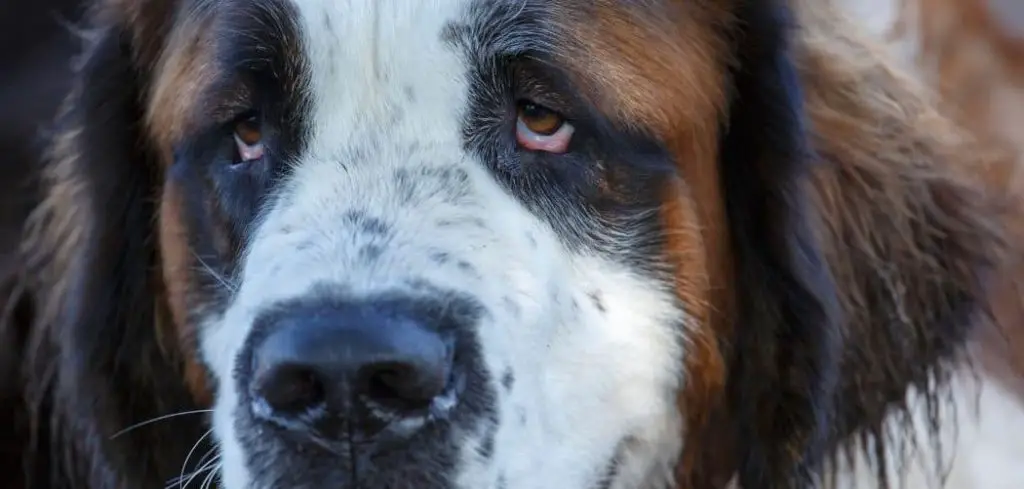When an old dog develops loose stool without any other obvious symptoms, it can leave owners feeling both concerned and confused.
Digestive changes in senior dogs can sometimes appear mild on the surface but still signal an underlying issue that needs attention.
We outline the common causes of loose stool with no other symptoms in old dogs, what you can do, and when to seek veterinary help.
Old Dog Loose Stool No Other Symptoms — Why It Happens
Loose stool in older dogs without additional symptoms can result from several different causes including dietary changes or sensitivities that develop with age, minor gastrointestinal infections, parasites, or chronic conditions like inflammatory bowel disease. In some cases, looser stool may be a side effect of medications or age-related changes in digestion.
While it may not appear alarming if your dog seems otherwise normal, persistent changes in stool consistency always deserve attention, especially in senior dogs.

Old Dog Loose Stool With No Other Symptoms: Common Causes
Dietary Indiscretion or Sudden Food Change
Older dogs often have more sensitive stomachs than younger ones. Even a small change in diet—like new treats, table scraps, or switching brands of kibble—can cause loose stool.
Owners may also notice that senior dogs tolerate fatty or rich foods less well, leading to temporary diarrhea.
If your dog recently had a dietary change, this could be the culprit.
Read more: Dog Loose Stool and Not Eating (Here’s what it could mean)
Food Intolerance or Sensitivity
With age, some dogs develop intolerances to certain proteins, grains, or additives. This can show up as loose stool without other obvious symptoms.
A dog may act completely normal otherwise but struggle to digest certain ingredients. If loose stool persists despite no dietary changes, sensitivities to common ingredients like chicken, beef, or wheat could be the underlying reason.
Parasites
Intestinal parasites such as giardia, whipworms, or hookworms can sometimes cause chronic loose stool without causing other dramatic signs like vomiting or lethargy.
Senior dogs may be more vulnerable to these issues, especially if their immune systems are weaker.
Even if stool looks only mildly loose, parasites should be ruled out through a simple vet test.
Inflammatory Bowel Disease (IBD)
Inflammatory bowel disease can occur in older dogs and may first appear as intermittent loose stools without other symptoms.
Over time, dogs with IBD may lose weight or develop reduced appetite, but early signs can be subtle.
Chronic inflammation in the gut interferes with nutrient absorption and causes ongoing stool irregularities.
Related: Dog Loose Stool With No Other Symptoms (Here’s why)
Pancreatic or Liver Issues
Digestive organs like the pancreas and liver play a major role in breaking down food.
If the pancreas isn’t producing enough digestive enzymes—a condition known as exocrine pancreatic insufficiency (EPI)—stools may be soft, loose, or greasy.
Early liver issues may also show up as stool changes before more obvious symptoms like jaundice or lethargy appear.
Stress or Age-Related Gut Changes
Older dogs may experience stress-related digestive issues, especially after boarding, traveling, or household changes.
Aging itself can also alter gut function, leading to looser stools. Even without other concerning symptoms, stress and age-related shifts in digestion can still impact stool quality.
What to Do If Your Old Dog Has Loose Stool With No Other Symptoms
If your senior dog has loose stool but otherwise seems fine, there are steps you can try at home. First, consider whether any dietary changes may have triggered the issue. Reverting to a simple, bland diet of boiled chicken and rice for a short period can sometimes help normalize digestion.
Make sure your dog stays well-hydrated. Loose stool can cause mild dehydration, especially in senior dogs, so provide plenty of fresh water.
If the problem seems tied to a new food or treat, eliminate it and return to their regular diet. Adding probiotics may also support gut health and help restore normal stool consistency.
If your dog’s stool remains loose beyond a couple of days, or if the pattern repeats, it’s important to seek veterinary advice. Even if your dog seems otherwise well, prolonged stool changes can indicate something more serious.
When to Call or Visit Your Vet
Contact your veterinarian promptly if the loose stool is ongoing for more than 48 hours or recurs frequently. Senior dogs can experience quicker health declines, and stool changes may be the earliest sign of something more serious.
Seek urgent care if you notice additional symptoms such as vomiting, blood in the stool, lethargy, decreased appetite, or signs of dehydration like sunken eyes or sticky gums. These can point to more significant illness.
If your dog is on medications, ask your vet whether they could be contributing to the loose stool. Sometimes, dosage adjustments or switching medications can resolve the issue.
Because parasites are a common but easily overlooked cause, your vet may recommend a stool sample test even if your dog appears otherwise healthy.
Read more: Old Dog Lethargic and Not Eating (Causes and what to do)
Key Takeaway
Loose stool in an older dog without other symptoms may not seem urgent at first, but it should never be ignored.
While diet changes or mild sensitivities may be the cause, senior dogs are more vulnerable to underlying issues like parasites, IBD, or organ dysfunction.
If your old dog’s loose stool persists, worsens, or occurs frequently, the safest step is to consult your veterinarian.
With timely care and attention, you can ensure your senior dog stays comfortable, healthy, and happy well into their golden years.
